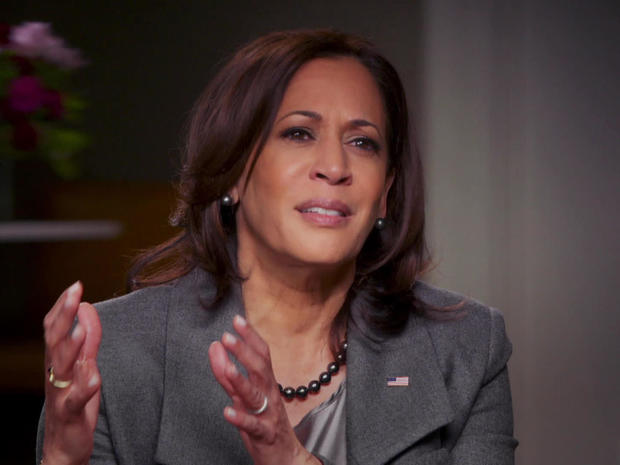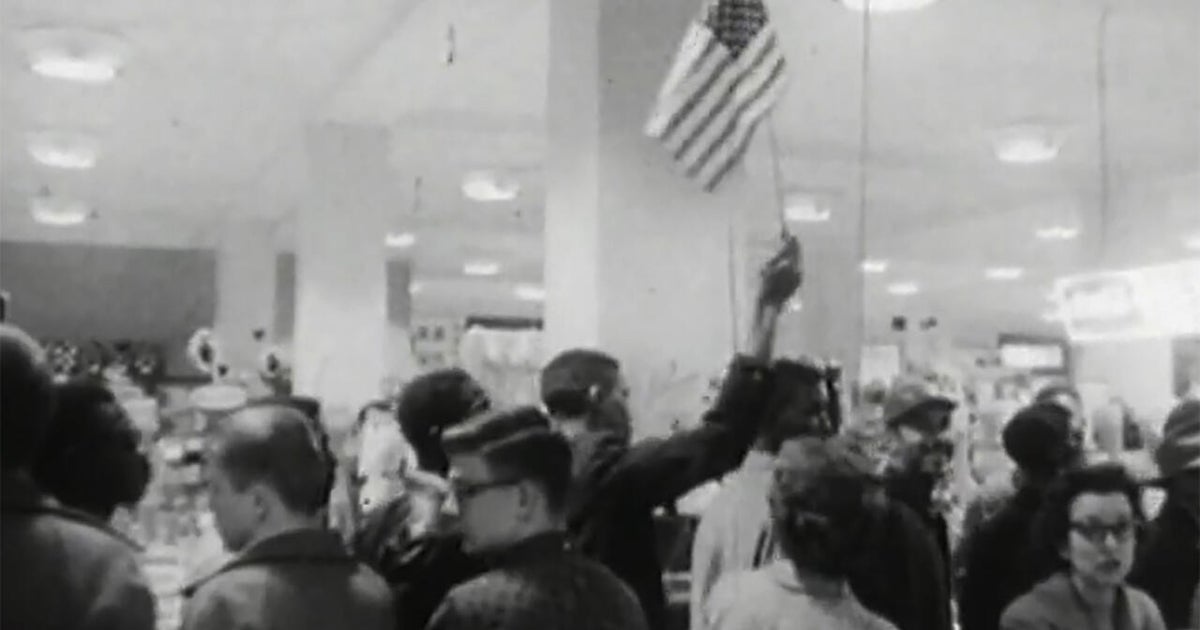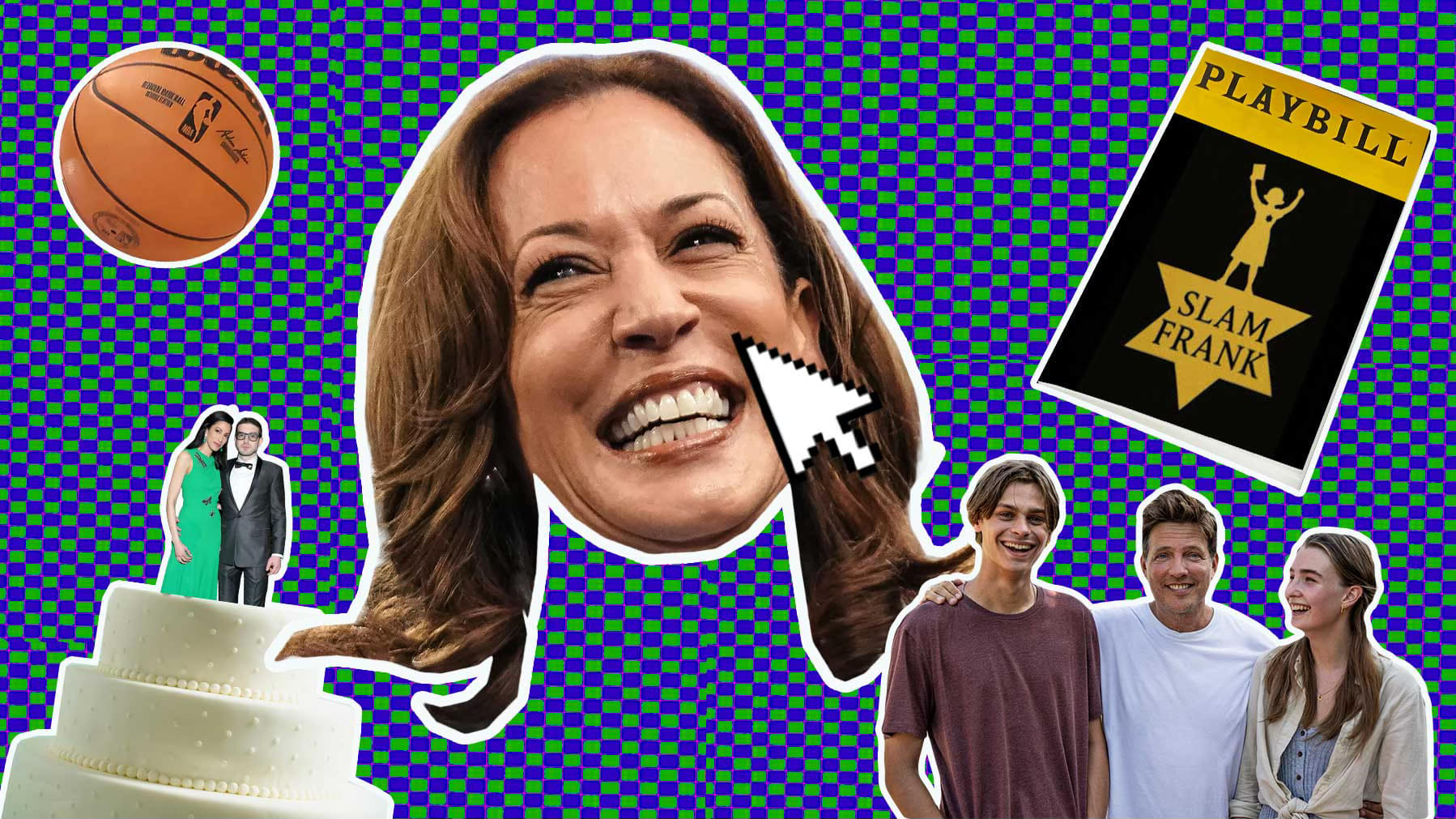Kamala Harris is "clear-eyed" about the job ahead: "It is not gonna be easy"
Part 1 of "Sunday Morning" anchor Jane Pauley's two-part interview with the vice president-elect:
"I was raised to not hear 'no,' let me be clear about it," said Vice President-Elect Kamala Harris. "So, it wasn't like, 'Oh, the possibilities are immense. Whatever you want to do, you can do.' No! I was raised to understand many people will tell you, 'It is impossible,' but don't listen.
"I mentor a lot of people, and I tell them that there will be people who will say, 'It's not your turn, it's not your time. No one like you has done it.' And I'll tell them, 'And don't you listen.'
"And then I will go on to tell them, 'I eat no for breakfast!'" she laughed.
There have been 48 Vice Presidents in the history of the United States, all of them men.
Until now. In three days, Harris will become the first woman vice president – also, the first Black vice president, and the first of South Asian ancestry.
CBS News' Jane Pauley asked Harris, "Are you excited about January 20th?"
"I'm not gonna let anyone take my excitement from me," she laughed.
But she and President-Elect Joe Biden come into office during some of the most troubled times our nation has ever faced: The pandemic, an economic crisis, and division made violently clear in the takeover of the Capitol on January 6th. Biden and Harris will be sworn in surrounded by unprecedented security.
Pauley asked, "What are you anticipating on January 20th when, as a news person, I'm already seeing split-screen coverage of the 50 State Capitol domes, where reports are that extremists are planning to be back here in D.C.?"
"This will be an inaugural like no other, in large part because of COVID," Harris said. "But we are gonna get sworn in. And we're gonna do the job we were hired to do. And that means focusing, for example, on getting people vaccinated. We want to get 100 million done in the first 100 days. It's gonna be very tough to do it. We're gonna reopen the schools in a safe way. We have to get to the job of healing America."
When Biden said, "I represent all of you, whether you voted for me or against me," it was a mantra for him and Harris. But the challenge they face was laid bare by the attack on Congress, exactly two weeks before Inauguration Day.
Pauley asked Harris to describe January 6, a day when "something seismic happened. May I ask, was the TV on? Did someone say, 'Madam Vice President-Elect, you gotta see this, come'? How did that unfold?"
"I was at the Capitol that morning, and then I was in a meeting, and I was told that I should leave. And then I was taken to a secure location, with my husband.
"We watched in horror," Harris said. "You are absolutely right, it was seismic. It was an inflection moment. You know, sometimes we think an inflection moment is the bringing of something that is positive. No. It was in many ways a reckoning. It was an exposure of the vulnerability of our democracy."
In a Senate now split 50/50 between Democrats and Republicans, as Vice President, Harris will cast tie-breaking votes. A split Senate has only happened three times before. This one comes after two Democratic Senate victories in the Georgia run-off elections, just a day before the Capitol takeover.
Still, the obstacles to the incoming administration's long to-do list are enormous.
Pauley asked, "How can you look at that agenda without looking at it through the veil of what we saw on January 6th, when we saw – how did Walt Kelly put it in 'Pogo' – 'We've seen the enemy, and it is us'?"
"Yeah, And it is us."
"And that is true no matter which side you are on."
"But Jane, this is not new. It is outrageous. And we will remember it like we have remembered some of the most significant [dates]. December 7th? We will remember, January 6th, There are certain things we are always going to remember as an attack on the foundations and the fundamental principles and ideals which we hold dear. Yes, I agree with you in that regard. But come on! People walking around carrying the Confederate flag? This is not a new display. We've seen this. We saw this over the course of the last four years, and we've seen it in our history, and the world's history before."
It might seem that Kamala Harris was born for this moment in history. Her father, Donald Harris, a Jamaica-born economist. Her mother, Shyamala Gopalan, a scientist from India. They met at the University of California at Berkeley. They divorced when Harris was seven, leaving her and her younger sister, Maya, to be raised primarily by their mother.
As Harris acknowledged in her acceptance speech at the Democratic National Convention last year, "She raised us to be proud, strong Black women, and she raised us to know and be proud of our Indian heritage."
"She emphasized your Black identity?" asked Pauley.
"She was very deliberate about it," Harris replied. "I mean, my mother arrived in the United States at the age of 19, because she had a dream and a goal to end cancer. She wanted to be a scientist. And automatically, in the midst of those turbulent times, became very attracted to the Civil Rights movement. She was very active in the civil rights movement in the '60s and beyond. And she was acutely aware that she was raising her two daughters in an America where we would very likely be treated and approached based on our race and our gender. And so, my mother raised her two daughters to be very proud Black women."
During the vice presidential debate, Harris noted, "Growing up, my sister and I had to deal with the neighbor who told us her parents [said she] couldn't play with us because we were Black."
Harris was bussed to integrated schools in Berkeley. That little girl, who was part of the second class to integrate her public school, later attended Howard, a historically Black university; earned a law degree at the University of California, Hastings College of the Law; and set off on a path to politics.
Pauley said, "You've been the first everything you've ever been -- district attorney, attorney general of California, first, first, first. Now, first Black woman, first South Asian woman – "
"And first woman!"
"First woman, okay! With belief in the power of government. And yet, as someone who prosecuted, excuse me, sex crimes, you knew those children, those teenage victims that you defended as a prosecutor, that you really couldn't change a great deal. How much do you expect in your first four years in the Biden-Harris administration? Is a generation gonna be enough?"
"Let me tell you, at the risk of sounding like an idealist," Harris said, "I used to have this debate with my mother. I'd say, 'Oh, Mommy, you're a pessimist.' And she'd say, 'You're an idealist.' And then I'd say, 'No, I'm an optimist.' And she'd say, 'Well, I'm a realist.' So, I exist in the spectrum between being an optimist and a realist.
"I've seen some of the worst in human behavior, to your point. I was a career prosecutor, for a large part of my career prosecuting child sexual assault cases. I've seen some awful stuff, and I've seen some beautiful, great things. And so that's where I exist. And I'm clear-eyed. Joe is certainly clear-eyed. We've got a big job in front of us, and it is not gonna be easy."
An agenda further complicated by this past week's impeachment. Biden and his vice president have elected not to weigh in on the next step in that process.
Pauley asked, "In February, will we still be talking about Donald Trump's presidency, through the impeachment process?"
"Listen," Harris replied, "let me be very clear about my position on Donald Trump: I strongly believe that he is incapable of being President of the United States, that he has been incompetent. And that's why I ran against him, and that's why Joe ran against him. So, this is not a statement about Donald Trump, but the American people deserve that in their president and vice president coming into office that we address the things that are weighing on them, and implement a plan. And that's what we're gonna do. It's not to the exclusion of many other things that need to be addressed around accountability, but that's our focus."
When Kamala Harris takes office on Wednesday, there will be yet another "first," when we meet the nation's first Second Gentleman.
For more info:
Story produced by Alan Golds. Editor: Ed Givnish.






